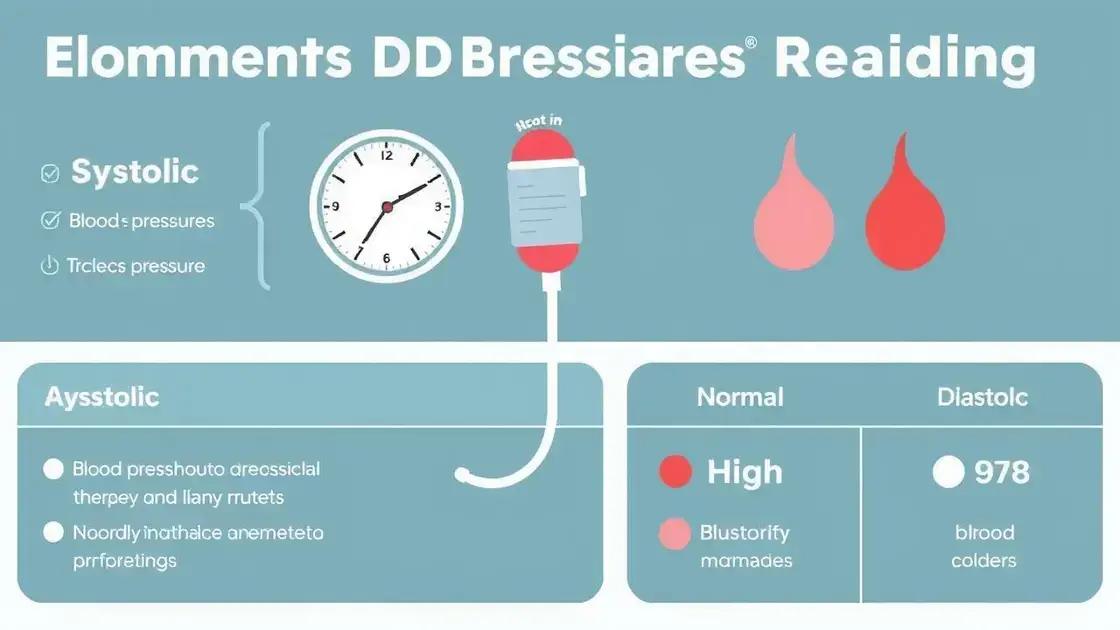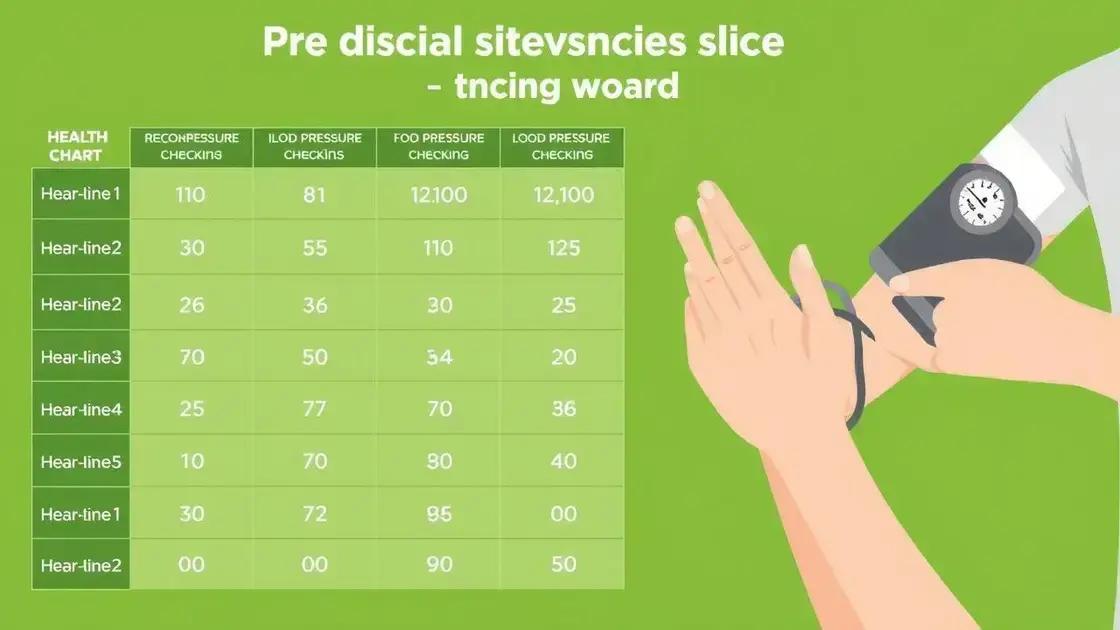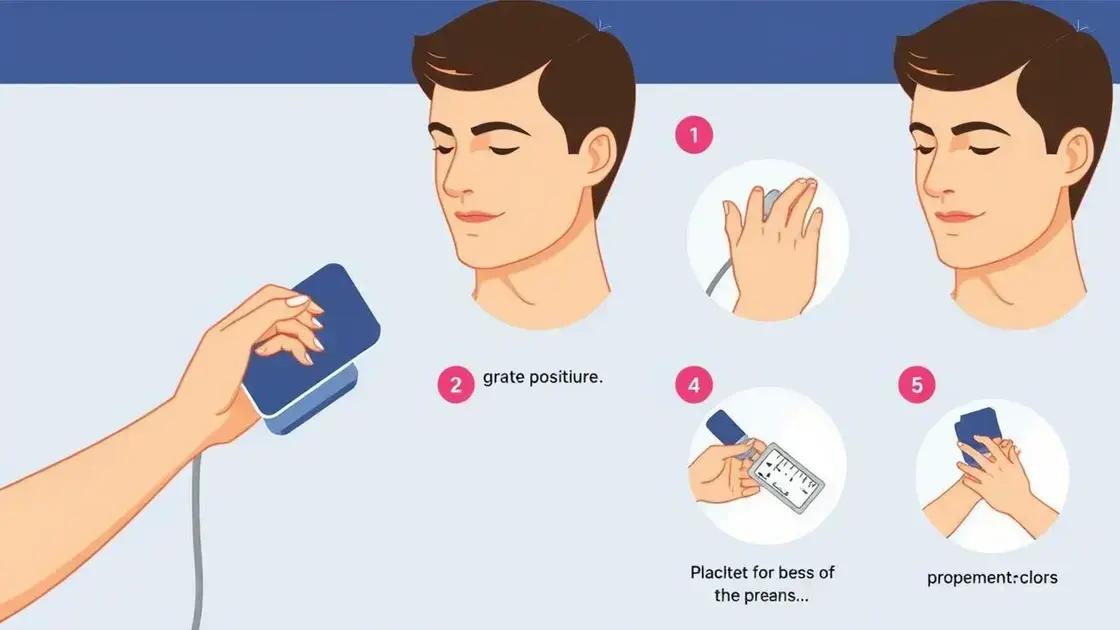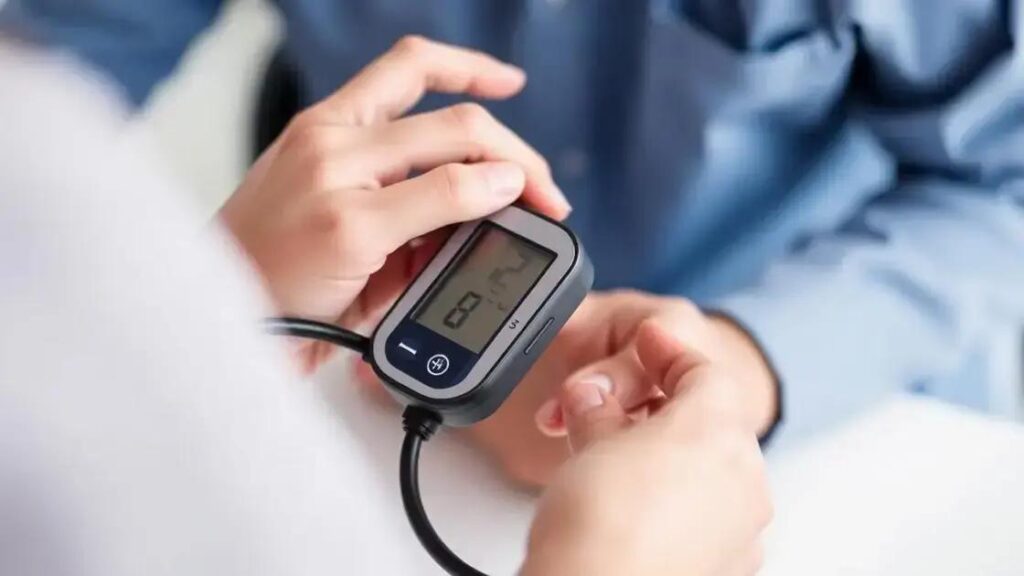The importance of regular blood pressure monitoring cannot be overstated, as it helps identify health issues early and enables timely intervention. For most adults, checking blood pressure at least once a year is recommended, while those with hypertension should measure it more frequently. To ensure accuracy, follow specific tips like proper positioning and consistent timing. Overall, being proactive about blood pressure can lead to better health outcomes.
Regular blood pressure monitoring is essential for maintaining cardiovascular health. High or low blood pressure can lead to severe health issues, including heart disease and stroke. In this article, we will discuss the importance of regular blood pressure monitoring, how often you should check it, and tips to ensure accurate readings. Staying informed about your blood pressure can empower you to make healthier lifestyle choices.
Understanding Blood Pressure Basics

Understanding blood pressure is essential for maintaining a healthy lifestyle. Blood pressure is the force of blood against the walls of your arteries. It is measured in millimeters of mercury (mmHg) and recorded with two numbers: systolic and diastolic. Systolic pressure is the first number, which measures the pressure in your arteries when your heart beats. The diastolic pressure is the second number, indicating the pressure in your arteries when your heart rests between beats.
Normal vs. High Blood Pressure
A normal blood pressure reading is below 120/80 mmHg. When this number gets higher, it can indicate hypertension, which can lead to serious health problems. High blood pressure can be a silent condition; many people are unaware that they have it until complications arise.
Blood Pressure Categories
The American Heart Association classifies blood pressure as follows:
• Normal: Less than 120/80 mmHg
• Elevated: 120-129/<80 mmHg
• Hypertension Stage 1: 130-139/80-89 mmHg
• Hypertension Stage 2: 140 or higher/90 or higher mmHg
• Hypertensive Crisis: Higher than 180/higher than 120 mmHg
Understanding where you stand in these categories helps you take timely actions.
Factors Influencing Blood Pressure
Many factors can affect blood pressure, including age, weight, diet, physical activity, stress, and genetics. Knowing your risk factors allows you to make informed choices about your health and seek medical advice when necessary. Lifestyle changes such as maintaining a healthy diet, exercising regularly, managing stress, and avoiding smoking can significantly lower your risk of high blood pressure.
Why Monitoring Matters

Monitoring your blood pressure is vital for keeping your heart and overall health in check. It helps identify issues early. High blood pressure often shows no symptoms, making regular checks essential. If caught early, lifestyle changes or treatments can prevent serious damage to your body, including heart attack or stroke.
Understanding Trends
By regularly monitoring your blood pressure, you can track changes over time. This information is crucial for your healthcare provider. Patterns in your readings can help identify what is working and what needs adjustment in your health plan. Moreover, having a record of your blood pressure readings can also improve communication with your doctor.
Encouraging Healthy Habits
When you monitor your blood pressure, you become more aware of your health. This awareness can motivate you to make better lifestyle choices. You might find that regular exercise, a healthier diet, and stress management techniques significantly impact your readings. Regular monitoring acts as a reminder to stick to these healthy behaviors.
Preventing Complications
One of the most significant reasons to monitor your blood pressure is to prevent complications. Uncontrolled high blood pressure can lead to kidney damage, vision loss, and other serious health issues. By knowing your numbers, you can take action to avoid these complications, thus attending to your well-being more proactively.
How Often Should You Check Your Blood Pressure?

Knowing how often to check your blood pressure is crucial for maintaining health. For most adults, checking blood pressure at least once a year is a good starting point, especially if your readings are normal. If your blood pressure is elevated or you have risk factors, such as a family history of hypertension, you should check it more frequently.
Guidelines for Different Needs
Here are some general guidelines:
• If you have normal blood pressure (below 120/80 mmHg), monitor it annually.
• If you have stage 1 hypertension (130-139/80-89 mmHg), check it every 3 to 6 months.
• If you have stage 2 hypertension (140 or higher/90 or higher mmHg), aim to check it monthly or as directed by your healthcare provider.
Daily Monitoring for Certain Cases
For individuals taking medication for high blood pressure or those with uncontrolled hypertension, daily monitoring may be necessary. Keeping a log of your readings can help your doctor adjust treatments as needed and improve your condition.
When to Seek Medical Advice
If you notice significant changes in your blood pressure or experience symptoms like headaches, dizziness, or shortness of breath, seek medical advice immediately. Your doctor can provide guidance on how often you should be checking your levels based on your individual health.
Tips for Accurate Blood Pressure Monitoring

To get accurate blood pressure readings, it’s essential to follow specific tips. First, always measure your blood pressure at the same time each day. This ensures consistency in your readings and helps you notice any changes more accurately.
Prepare Properly
Before taking your measurement, sit quietly for at least 5 minutes. Make sure you’re in a comfortable setting. Avoid caffeine, exercise, and smoking for at least 30 minutes before checking your blood pressure.
Correct Positioning
When measuring, sit with your back supported and feet flat on the floor. Keep your arm supported at heart level. This position helps ensure you get the most accurate reading possible.
Use the Right Equipment
Make sure your blood pressure monitor is validated and appropriate for your arm size. Regularly check its accuracy against a standard measurement at your doctor’s office. Replace batteries and maintain the device according to the manufacturer’s instructions.
Take Multiple Readings
To ensure accuracy, take at least two readings one minute apart and record both. If there’s a significant difference, take a third reading. This practice can give you a better overall picture of your blood pressure.
In Summary, Ensuring Your Health Through Regular Monitoring
Regular blood pressure monitoring is crucial for maintaining overall health and preventing serious conditions. By understanding the basics of blood pressure, recognizing why monitoring is essential, and knowing how often to check your levels, you can take proactive steps towards better health.
Implementing tips for accurate monitoring will enhance the reliability of your readings. Remember, consistency and awareness in your health journey can lead to significant improvements in well-being.
Don’t underestimate the power of regular blood pressure checks. They can be a simple yet effective tool to help you stay on top of your cardiovascular health.
FAQ – Frequently Asked Questions about Blood Pressure Monitoring
Why is regular blood pressure monitoring important?
Regular blood pressure monitoring helps identify potential health issues early, allowing for timely treatment and prevention of serious complications.
How often should I check my blood pressure?
If you have normal blood pressure, check it once a year. For elevated or high blood pressure, consult your doctor for a personalized schedule.
What are some tips for accurate blood pressure readings?
To ensure accuracy, measure at the same time daily, sit quietly for five minutes before taking a reading, and follow correct positioning.
What factors can influence blood pressure readings?
Factors include time of day, recent physical activity, stress levels, and body positioning during measurement.
What should I do if I notice high blood pressure readings?
If you consistently have high readings, consult your healthcare provider to discuss possible lifestyle changes or medications.
Can I monitor my blood pressure at home?
Yes, home blood pressure monitors are widely available and can help you keep track of your blood pressure levels efficiently.













